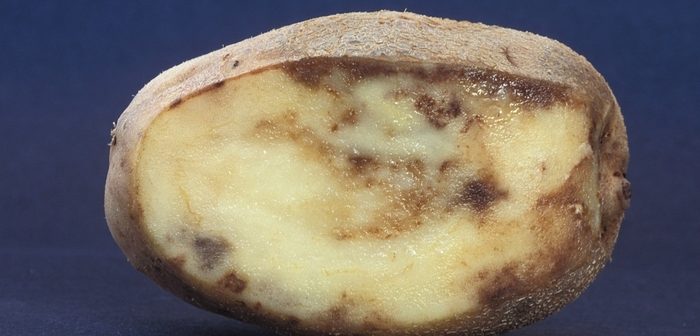Eden Research plc the AIM-quoted company focused on sustainable biopesticides and plastic-free formulation technology for use in global crop protection, animal health and consumer products industries, announces that it has partnered with M H Poskitt (“Poskitt”) to develop and trial a new bio-fungicide product designed to protect and improve the quality of vegetables.
The partnership has been established to support an R&D project that M H Poskitt has been engaged in investigating the effect of mugwort plant extract on key plant diseases. Farmers at Poskitt found the weed growing amongst parsnips and noticed that the area had a markedly lower disease and pest pressure. Since the discovery, mugwort extract has been trialled on potatoes, carrots, and parsnips, and initial results suggest that it could help to combat fungal diseases. One example is potato late blight (Phytophthora infestans), which is a significant disease in both organic and conventionally grown potatoes and if left untreated, can destroy entire crops.
Over the coming two years, Eden, which has expertise in plant-derived sustainable chemistry and developing and registering biopesticide products, will be conducting wider testing with the aim of developing a commercially viable product. The collaboration is currently in the early stages of development and does not have a significant impact on management’s expectations for the performance of the business for the time being. This unique project could eventually provide farmers with a naturally-derived product to help protect against late blight, which costs farmers an estimated £55m each year in the UK alone.
Options for chemical control of late blight are very limited. Recently, the EU Standing Committee on Plants, Animals, Food and Feed voted not to renew a key active ingredient that is commonly used to combat late blight. The ban will come into force over the next 12 months, and as a consequence, farmers have even fewer good choices for the effective control of diseases. This further highlights the urgent need for sustainable crop protection alternatives. Both Eden and Poskitt are aligned in their belief that the UK agriculture sector requires more sustainable, alternative crop protection products.
M H Poskitt is a family owned farming business based in East Riding, Yorkshire, specialising in the growing and packing of root vegetables for leading supermarkets and is a leading producer of carrots in the UK. Poskitt’s farm currently produces approximately 80,000 tonnes of crops per year serving UK retailers and a range of other customers. Over the last 30 years, Guy Poskitt has built the business from a 600 acre tenanted farm to an agriculture business with over 6000 acres of both owned, rented and contracted farmland in Yorkshire and other counties of the UK with onsite washing and packaging capabilities.
Sean Smith, chief executive officer of Eden Research, commented: “Our partnership with innovative grower Poskitt is an excellent example of collaboration in UK agriculture. Eden and Poskitt share the mutual goal of advancing sustainable alternatives for crop protection in the UK and further afield. When we first heard about Poskitt’s discovery and the initial R&D, we were keen to get involved due to our experience in developing plant-derived chemistry into effective products. Poskitt’s initial observations and field evaluation work are an excellent example of how innovative Britain’s farming sector is, and we look forward to working with Poskitt on this project and achieving positive outcomes for the future of UK crop protection.”
Guy Poskitt, managing director of M H Poskitt, commented: “We are delighted to be working with Eden to advance the R&D project in collaboration with another British company championing sustainable agriculture as the goal posts get higher for quality, residue-free produce in supermarkets. Following successful results in our initial field trials, we are excited about potentially finding an alternative treatment to phytophthora, which remains one of the biggest challenges faced by root vegetable farmers.”




